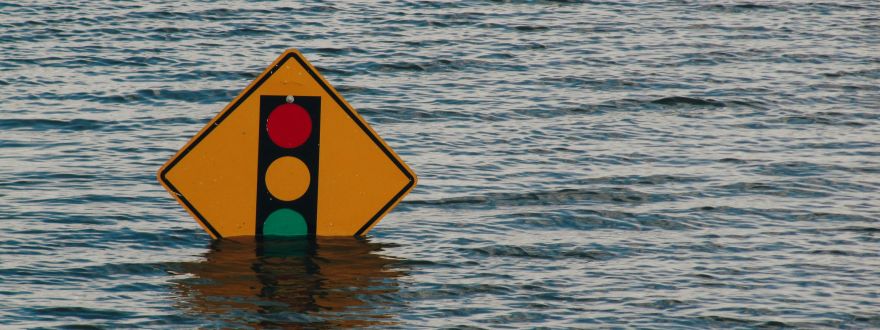
It seems like a climate-related disaster is making headlines every day in 2024. Tornadoes throughout the Midwest, debilitating snowfall in the South, and rampant wildfires in the West are just a few of the threats that are all too present in the era of climate change. With this in mind, it has never been more important to have the proper insurance in place to protect your assets, especially in the hospitality industry. Keep reading as we explore the various ways that insurance can shield hospitality businesses from natural disasters.
What Is the Threat of Natural Disaster?
The threat of natural disaster has reached unprecedented heights in 2024. According to Forbes, the United States has an average of 18 disasters each year that result in at least one billion dollars worth of damage. Without the proper planning to mitigate risk and adequate insurance coverage in place to make your business whole should a disaster strike, hospitality businesses are at greater risk than ever of losing everything.
How Can Insurance Shield Hospitality Businesses Against Natural Disasters?
There are numerous ways that insurance can shield hospitality businesses against natural disasters. A few of the many benefits insurance can provide are:
-
Liability protection for large business assets
-
Smaller property protection
-
Relief from lost income
-
Crime coverage
-
Worker protection
Let’s dig deeper into some of these specific coverage types and discuss how they can benefit a hospitality business.
Commercial General Liability (CGL)
This protects the business’ “big stuff” in the event of natural disaster. Common losses to buildings, machinery, and product inventory are covered against loss with CGL.
Commercial Property Protection
This protects the business’ “small stuff.” Day-to-day items that help the business operate, such as computers, furniture, fixtures, equipment, records, and other supplies are covered under commercial property protection.
Business Interruption Coverage
Business interruption coverage provides relief against income loss. It weighs the impact of how the slowing/cease of operations impacts the bottom line. It factors in challenges such as customer defection and the cost of keeping employees on payroll while revenues are diminished. It may even help provide temporary emergency housing accommodations to keep operations running as smoothly as possible while the main facility is being rehabilitated.
This is a particularly relevant type of coverage for hospitality businesses. As hospitality is all about service, any disaster that prevents or limits a business’ ability to accommodate guests will be extremely crippling.
Commercial Crime Protection
Natural disasters weaken the security infrastructure of a hospitality business and put it at heightened risk of looting and other types of crime. Unfortunately, much of this crime is initiated by employees who have firsthand knowledge of the business’ vulnerabilities. Commercial crime protection can help recover losses due to theft, data breaches, and other crime-related losses that may occur subsequent to the disaster.
Worker’s Compensation and Employer’s Liability
This is one of the most familiar types of insurance to hospitality businesses. It protects workers in the event that they are injured on the job. As worker’s compensation can be costly, businesses constantly check for hazards and the condition of stairwells and commercial railing systems to limit the likelihood anyone is injured on the job. This is even more relevant in areas prone to natural disaster, which can increase the likelihood of an incident occurring if the building is compromised in any way.
Considerations for More Favorable Coverage
With coverage restricted in some areas of extreme weather, hospitality businesses can increase their chances of more favorable coverage by renovating to protect against natural disaster.
Safeguards Against Flood Damage
Flooding is one of the stickiest natural disasters in the insurance business. Not only can flooding cause immediate damage to property, but its most debilitating effects are often insidious, creating a haven for rot and structural issues that slowly rear their head over time. As a result, many basic insurance policies do not include flood protection. It usually has to be purchased separately. To give a hospitality building the best chance of getting favorable flood coverage, look into waterproofing foundation walls, installing outdoor drainage grates throughout the building’s exterior, and using permeable paver systems that limit the impact of stormwater runoff.
Improved Fire Mitigation
The Western United States are drying up. Many of the most terrible wildfires that have occurred in the Western U.S. have occurred just in the last few years. As California residents know, getting fire coverage can be difficult, to say the least. Improve your hospitality business’ chances by using smoke baffles and fire curtains, such as those used in data center fire suppression systems, building with insulated concrete forms (ICF) or other non-combustible framing, and choosing fire-resistant metal or composite roofing.
Fortification in Areas of Extreme Wind
Extreme cold turning to extreme heat in a matter of days has caused some of the most violent tornadoes and hurricanes in recent memory. Protect a hospitality building against extreme wind and projectile debris with hurricane-grade storm windows, impact-resistant siding, and architectural grilles.
Don’t Wait: Insure Your Hospitality Business Against Natural Disasters Today
In the era of climate change, it has never been more important to protect your physical assets with the proper insurance coverage. This is especially true in the hospitality industry, which is all about creating favorable guest experiences. By considering the various coverages and best practices listed above and exploring the multitude of resources at Barber Insurance Agency, hospitality businesses can be in the best position possible to protect themselves against loss.
Author Bio:
Roger Marx is a freelance writer that loves sharing his knowledge and expertise on the latest trending building and design products. He lives in Minneapolis, Minnesota where he enjoys spending time with his wife and working on backyard projects in his spare time. Roger’s work as a freelance writer can be found on Building Product Advisor, a construction industry resource site.





